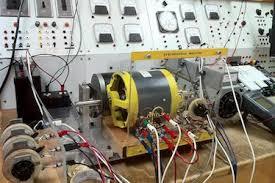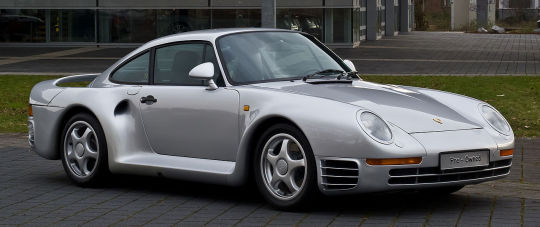#B Tech in Electrical Engineering
Explore tagged Tumblr posts
Text
Is Electrical Engineering Still a Smart Career Choice in 2025?
If you're in Class 12 and planning to pursue engineering, you’ve probably asked this question—“Is electrical engineering still worth it?” The answer is yes, and more than ever. As industries evolve and move toward automation, smart grids, electric vehicles, and clean energy, electrical engineering continues to stay relevant and in high demand.
You just need to learn it the right way.
Why Electrical Engineering Still Matters
Almost everything around you—your home, car, gadgets, factories—runs on electricity. As the world shifts to sustainable power and digital infrastructure, electrical engineers are building and maintaining the backbone of that transformation.
The demand is strong across sectors like:
Power and Energy
Railways and Metro Systems
Electronics and Instrumentation
Smart Cities and IoT
Electric Vehicles and Mobility Solutions
Renewable Energy (Solar, Wind, Smart Grids)
A modern electrical engineering course in India prepares you for jobs that didn't even exist a decade ago.
What You Learn in an Electrical Engineering Program
It’s not just about wires and circuits anymore. A good program will train you in both the core and the current tech that powers industries today.
At BBDU, the B.Tech in Electrical Engineering includes:
Electrical Machines and Control Systems
Power Electronics and Smart Grid Technology
Microprocessors and Digital Circuits
Electric Vehicle Tech and Battery Systems
Renewable Energy Integration
Automation and PLC Systems
You work in labs, on projects, and learn how these systems apply in real-life industries.
The Job Market Looks Promising
India is expected to be the world’s third-largest energy consumer by 2030. Electric mobility, solar power, smart infrastructure—all need electrical engineers. Big companies like L&T, Siemens, ABB, Tata Power, and NTPC are actively hiring.
Graduates from the right electrical engineering college in Lucknow get hired as:
Electrical Design Engineers
Power Systems Analysts
Maintenance Engineers
Smart Grid Specialists
Renewable Energy Consultants
Electric Mobility Engineers
And with the right skill set, you’re also ready for international opportunities.
Why BBDU is a Smart Choice for Electrical Engineering
At Babu Banarasi Das University, the B.Tech in Electrical Engineering is designed to match what the industry needs. It goes beyond theory and builds your confidence with practical training.
Here’s what BBDU offers:
Industry-ready labs and simulation tools
Experienced faculty from top institutions
Internships with energy and automation firms
Career counseling and placement support
Exposure to EV, green energy, and smart grid systems
Affordable fee structure with scholarships
The program builds your technical knowledge and practical skills for tomorrow’s jobs.
Conclusion: A Powerful Career Starts with the Right Decision
So, is electrical engineering still a smart career in 2025? Yes. But only if you choose a program that is updated, industry-driven, and focused on your future.
Start your journey with the right choice. Apply now to BBDU—one of the most future-ready electrical engineering colleges in Lucknow. Your path to powering the future begins here.
1 note
·
View note
Text
Pursue B Tech in Electrical Engineering at REVA University
REVA University offers a well-structured B Tech in Electrical Engineering program, covering power systems, control engineering, and renewable energy. With advanced labs and expert faculty, students gain industry-relevant skills.
0 notes
Text
B Tech In Electrical Engineering College In Kolkata
B tech electrical engineering course at Swami Vivekananda University aims to prepare students for a dynamic career in the field of electrical engineering.

#b tech electrical engineering#electrical engineering courses#b tech electrical#b tech in electrical engineering#best colleges for electrical engineering#b tech electrical subjects#b tech in electrical engineering college#top electrical engineering colleges#b tech in electrical engineering college in Kolkata
0 notes
Text
From B.Tech to Beyond: Exploring Post-Graduate Degrees in Engineering

Engineering is a very fantasizing and exciting job. The engineering field opens up a wide range of opportunities for a good job. Acquiring a specialization degree in Engineering can increase the potential of your career. Arya College of Engineering and IT provides the various field of specialization for engineers. Therefore, today, I am going to tell you about some major specialization degrees for engineers.
Aerospace Engineering
Aerospace engineers design, manufacture, and test the various components of the aircraft and spacecraft. The major functioning of the job profile is to operate, record and calibrate the tests of the components with the help of computers. The aerospace engineers can work on a single project for a long duration, even after its completion.
Civil Engineering
Civil engineers are widely recognized for their immense contribution to the nation. The civil engineers design and oversee the construction of many major systems of infrastructures. The infrastructures are roads, big buildings, bridges, etc. The civil engineers have the opportunity to choose between the on-site construction projects or in- office administration projects.
Electrical Engineering
Electrical engineers design and develop the equipment of the electrical department professionally. The functioning of the electrical engineers also tests and oversees the process of manufacturing. The engineers have the opportunity to choose between manufacturing and researching in the varied industries. The specialization in this field will increase your career potential.
Biomedical Engineering
Biomedical engineers manufacture, educate, and perform a variety of specialized operations. The other functioning of the biomedical field is to design some medical products like artificial limbs, etc. The engineers also maintain and repair the advanced equipment of the biomedical field.
Mechanical Engineering
Mechanical engineers are one of the most popular engineers among youth. The specialization in this degree provides varied career flexibility. The engineers of this field can design and manufacture various kinds of equipment and machinery. The equipment includes elevators, motors, dishwashers, etc.
Agricultural Engineering
Agricultural engineers have the opportunity to work in various industries like forestry, farming, and fishing. The engineers of this field can choose between the conservation of the wildlife or designing and manufacturing of the equipment. The agriculture engineers also have the opportunity to work for the large industries or for the government.
Chemical Engineering
Mostly, the chemical engineers work in big companies for the manufacturing of the products like food, drugs, chemicals, etc. the chemical engineers also have the opportunity to work in some specialized areas like air and water pollution management or the fabrication of the semiconductors.
Environmental Engineering
Environmental engineers create solutions for the protection of the environment by applying the different principles and techniques of the engineering. The specialization in this field of engineering work in various fields like managing the legal permissions to the government, designing, and managing the different projects focuses on the protection of the environment.
Industrial Engineering
The professional in Industrial engineering mainly focuses on the processing and efficiency of the workflows, people, equipment, etc. The major functioning of the industrial engineers includes the coordination, communication, and inspection in the large- scale industries.
Health and Safety Engineering
The professional engineers from the health and safety field manage the amalgamation of the accidental preventions and safety measures of the employees in a company. The other functional areas of this field of engineering involve industrial and occupational hygiene.
Therefore, it is clear that there are many career possibilities for the engineers to acquire a specialization course. Arya College Jaipur provides a various field in the M tech courses for the students.
Source: Click Here
#best btech college in jaipur#top engineering college in jaipur#best engineering college in rajasthan#b tech electrical in jaipur#best btech college in rajasthan#best private engineering college in jaipur
0 notes
Text
Integrated Program AME License & B. Tech Electrical Engineering - FIAME

The "Integrated Program for AME License & B.Tech in Electrical Engineering" is like a double adventure packed into one big journey. It's designed for students who are excited about airplanes and how they work, especially the electrical stuff that makes them fly, but also want to dive into the wide world of electrical engineering. Electrical engineering is all about figuring out how to use electricity to make things work, from tiny gadgets to big, powerful machines.
This program takes about 4 years to complete. The first part focuses on learning all about Aircraft Maintenance Engineering (AME), with a special look at avionics. Avionics are the electrical systems inside airplanes that help them fly safely. It's about making sure airplanes are in perfect shape to take to the skies.
0 notes
Text
Reach the Zenith of Success with EEE Courses
If you want to become an important contributor to the electrical domain, then an EEE course might be ideal for you. However, not being able to get enough info on the admission processes to proper courses might seem frustrating.
0 notes
Text
The crucial contribution of Electrical and Electronic Engineers in today’s world

Electrical and electronic engineers play a pivotal role in shaping and advancing our society. The contributions of these professionals extend far beyond the development of gadgets and electronic devices; they are essential architects of the technological infrastructure that underpins modern life. From powering our homes to revolutionizing communication and healthcare, the impact of electrical and electronic engineers is pervasive and indispensable.
0 notes
Text

#engineering#technology#btech cse#btech computer science#btech in civil engineering#btechadmission#btechcourse#b tech electrical engineering
0 notes
Text
Career Opportunities After Electronics & Communications Engineering
In today's rapidly evolving technological landscape, pursuing a bachelor of electronics and communication engineering opens up a world of enthralling and diverse career opportunities. This field of study encompasses a wide range of knowledge and skills, making graduates highly sought after in various industries.
As technology continues to grow, the demand for professionals with expertise in electronics and communications engineering remains consistently high. Let's look at a multitude of career paths available to those who hold a degree in electronics and communication engineering and highlight the significance of this qualification in the modern world.
What is Electronics & Communications Engineering?
Electronics and communication engineering involves the design, development and maintenance of electronic devices and telecommunication systems.
This field combines principles from both electrical engineering and computer science to create innovative solutions for a wide range of applications. Students pursuing this degree acquire knowledge in areas such as digital electronics, analogue electronics, telecommunications, embedded systems, signal processing, and more.
Career Opportunities:
Telecommunications Engineer: Telecommunications engineers play a pivotal role in the design and maintenance of communication networks, including wired and wireless systems. They work with companies and service providers to ensure reliable and efficient data and voice transmission.
Electronics Design Engineer: These professionals are responsible for designing electronic circuits and systems, from consumer electronics like smartphones to complex medical devices and aerospace equipment. They use their knowledge of electronics to create innovative solutions that meet specific requirements.
Embedded Systems Developer: Embedded systems are at the heart of many modern devices, such as automotive systems, IoT devices, and industrial control systems. Electronics and communication engineers specializing in embedded systems design and develop the software and hardware components of these systems.
Network Engineer: Network engineers are responsible for planning, implementing, and managing computer networks. They enable data to be transmitted securely and efficiently, making them critical in the IT industry.
Signal Processing Engineer: Signal processing engineers work with various types of signals, such as audio, video, and image signals, to extract and manipulate information. They are in demand in industries like multimedia, medical imaging, and telecommunications.
Robotics Engineer: With the rise of automation and robotics, electronics and communication engineers are sought after to design and develop robotic systems for manufacturing, healthcare, and other industries.
Aerospace Engineer: Aerospace engineers use their expertise in electronics to design and maintain avionics systems in aircraft and spacecraft. They ensure the safety and functionality of critical electronic components in these vehicles.
Research and Development: Electronics and communication engineers can also pursue careers in research and development. They work in laboratories and innovation centres, pushing the boundaries of technology and contributing to advancements in their field.
Academia: Graduates can choose to pursue advanced degrees and enter academia as professors, teaching and conducting research in universities and colleges.
Conclusion:
A bachelor of electronics and communication engineering equips graduates with a strong foundation in electronics, communication systems, and technology, making them highly versatile professionals in today's job market. The skills acquired during their education are applicable to an expansive range of industries, from telecommunications to aerospace, ensuring a plethora of career opportunities.
In conclusion, the field of electronics and communication engineering continues to grow and evolve, presenting graduates with promising career prospects. Whether one aspires to work in telecommunications, research and development, or academia, a degree in electronics and Communication engineering opens doors to a world of possibilities. So, if you are passionate about technology and innovation, consider pursuing a B Tech electrical and electronics engineering degree and embark on a rewarding and dynamic career journey.
#b tech in electrical and electronics engineering#bachelor of electronics and communication engineering#nitte university#b tech colleges#engineering colleges#Nitte University
0 notes
Text



People might only remember the F40 being the best supercar of the 80s but many forgot that the Germans had an ace up their sleeves and was built from the ashes of rallying.
Top to bottom in anti-clockwise: Porsche 959 - Porsche 959 Paris-Dakar form climbing a dusty ledge - Porsche 953.
Porsche has always been built to race but most of their race series was road racing, rallying has always been a back burner. Even in the post-war 40s-60s, the rallies that the factory Porsche team got involved with were long distance rallies like the Targa Florio or the Panamericana but for dirt rallies, its mostly ran by privateers and it actually did well enough.
Thus, when the Group B format was released by the FIA and having witnessed how Audi showed potential with their AWD on the dirt rallies of WRC in 1982, Porsche expected to build a car to race in Group B. However, with Audi and the others already competing in the WRC, the Porsche works team didn't want to fight for the limelight thus they entered a more quiet series back then but even more demanding, and that's the Paris-Dakar, which unlike the actual WRC, doesn't require the restrictions for the already laxed WRC Group B regulation. They wanted to prep the car for 1984 but that didn't materialize in the end.
By the mid of 1983, Porsche realized that they could not complete the car on time for the 1984 season as they could not find a way to test the whole car with the drivetrain. However, some engineers remembered that they were still making the 911SC chassis and they could work with it so they got 5 of them and stuffed the AWD system in there whilst turbocharging the 3.2L flat-6 engine the base 911 came with and took the cars to compete in the 1984 Paris-Dakar Rally with 3 competing and two others as spare and it was codenamed as the "953". Results were rather satisfactionary and with 300hp from the turbocharged flat-6 plus Porsche's reliability, Porsche managed to clock the overall win with the 953 the very season it competed with the other 2 that it entered with one at 6th and the third at 25th thus Porsche liked the results alot.
The 959 was debuted to the public in 1985 at the Frankfurt Autoshow but again it faced problems as Porsche still can't produce it till the very next year but, the reception of the car was rather good so Porsche continued tweaking the car whilst giving the spare chassis and engine that were done to be prepped by Rothmans to compete in the 1986 season. With the new engine that has a smaller displacement at 2.8L vs the 3.2L from the 953, coupled with a twin-turbo system, it makes approx 444hp but it was potent enough for the job and with the car being entered in the '86 season, it once again won and this time, every single car, all 3 of the 959s entered got into the top 10s and with one even clinching the win. However, like many other carmakers, Porsche's dreams were shattered as Group B was disvowed the very same year the car was set to compete in that class.
That did not really stop Porsche's ambition as they finished building the road-going version of the 959 and it also performed well. With the same hp figures of the Paris-Dakar Rally version, the "Komfort" version performed well that it was the fastest vehicle of all time being able to do 198mph/318kmh before the Ferrari F40 took that title a few months later when it launched. Porsche wasn't done still. Whilst making the 959 for customer orders and hearing that the F40 had taken their crown for the "fastest car on earth" title, Porsche wanted to take it back thus they started to push for an update on the existing 959 and they pushed out an "S" model by 1988. What Porsche did was to swap the turbos to a set of bigger turbos and stripped off all the unneeded items in the car like aircon, electric windows and the suspension levelling tech just to save weight and, it did work. It was eventually tested and it reached 211mph/339kmh, taking the crown back from Ferrari.
In total, 343 959 were built from 1986-1993 with 8 being built for their Paris-Dakar team, 29 "S" variant (Fun fact: Bill Gates owned an S that had the aircon reinstalled in there) and the rest being the normal "Komfort" variant.
32 notes
·
View notes
Text
The term “Modern AU” for Naruto fandom needs to die. (Jk, sort of). It needs a new name, for ontologies sake.
Like. There is no consistency to the technological advancement in Naruto at all, but nonetheless, it is a demonstrable product of its initial years of development, which is the 90’s.
Throughout pt1 and Shippuden, we get a weird and nonsensical mix of Showa era (all of it, from 1886-1949) postwar period (1947-1980 thereabouts, though Wikipedia will disagree with me on that) and mid-late 90’s tech boom.
Now you could solidly argue for a “modern” interpretation of the Showa-era systems and customs, although that very much interferes with 1. the Uchiha as a clan, because they are 100% late Showa / WW2 period culturally. Hyuuga are more representative of the earlier Showa era, like 1920’s or so. SO yes you could do away with that, but frankly those clans are not themselves outside of that satirical context. (And I do actually think Kishimoto meant it to be satire, or at least his editor, who came up with most of the Uchiha premise, did). And
2. The whole Shinobi premise, which had still-living threads during that time period despite Shinobi as a profession supposedly dying in the 1850’s. (Pfffffft, Like mercenaries went anywhere during the European renaissance; they simply went from mercs to commissioned officers. Title change but not role change. Same idea.)
Furthering this, if you take them out of the dirt, so to speak, then they cease to have the in-universe function that they do. They don’t have to — you can still absolutely mock up a Mercenary-Paramilitary-Mage Caste for the “modern” world, by which is typically meant: In Japan/Our World, not the NarutoVerse.
Yes I know I’m being pedantic, but to say “modern” implies “past” and while there’s lots of that in Naruto, there’s also:
90’s Telephones (why doesn’t the Hokage have one in their office??? Landline is pretty darn secure.)
90’s Electricity
Computers (90’s era, but clunky things with limited functionality but can store data)
Floppy Disks to go with the above
Security cameras
Polaroids (again, 90’s era)
The cutting-edge-of-its-time (90’s again) radio collars
Industrial production of steel (how? We don’t know. But they can build 80’s-90’s skyscrapers, somehow.)
Steam engine (not that impressive or modern, but like, Where Are The Trains. We got 90’s steam boats in Kiri, but no locomotives? How? Why?)
Medical devices. Oh the list I could make about that. All like mid- late 90’s, at least in Konoha/Orochimaru and Co. The iron lung does not exist, replaced by stately 1999-2002 ventilators. (Kimmimaro) The concept of IV nutrition exists and is applicable, even if Kishi did an absolutely abysmal job of demonstrating that. (On Kakashi) (the reality: So. Many. Ports.) That little innovation didn’t exist until 1982, and didn’t actually work until 1996. (Because figuring out how to synthesize metabolic fats and proteins was really hard); you’ve got Ostomy tubes and bags that belong in 1995, (Kimmimaro again) and don’t even get me started on Lab equipment. Do you know how long it took to produce incubators that didn’t take up a quarter of a room? Do you have any idea what the world of cloning looked like in the 90’s? (Actually, it was a lot more advanced at that point than it is in Naruto, which is stuck in like, 1980’s with that notion).
And I could go on!
And there is just as many examples of the inverse, too, where there’s things juxtaposed to the past level. Example:
Psychiatric care. Granted we don’t see a lot of that outside of Kakashi’s little stint, but it is very 1940’s-1950’s type BS.
Similar to that, most the stuff in the Interrogation Unit. From attitudes to technology, but mostly in just the very weird, 1930-1950’s way the whole thing operates. Kishimoto did not do his research there, very obviously (Torture does not work like that), but nonetheless they give me Nazi vibes. (Well, Inaba and Ibiki do, respectively). That part might be intentional, but it still doesn’t really make sense in the bigger scope. (Why doesn’t the village know things when they are a SHINOBI VILLAGE. A postwar village no less! Make it make sense Kishi!)
Some elements of medicine. There’s a very weird divide there, between synthesized chemicals that are complex poisons, which SHOULD mean complex medicines exist, (because the only difference between medicine and poison is the dose and many toxins have medical value) and the demonstration of this, which relies upon herbalism. I suppose both those would exist in a Shinobi’s world, but there’s a bizarre element of “only the bad guys actually have good medicine” going on, which again is a very 1940-1950’s thing.
Idk, I feel like “modern” sort of fits? But not entirely. Because fundamentally the NarutoVerse is a completely separate dimension, a twisted alternate reality that is very removed from our own yet also very like it.
Gahhhhh the world building in this series is hot, messy garbage 🤣
I would love to see an AU where it’s more homogeneous, like smack-dab postwar all over the board. Or even just bring her up to the 90’s. That would be actual modern-NarutoVerse.
But using Modern to mean “Our World” has always just been a small thing to bugger me. Use what you want, because I don’t think the term is going anywhere, but if I can’t share this anywhere else I can share it here.
29 notes
·
View notes
Text
BTech Electrical and Electronics Engineering – REVA University, India
B Tech Electrical and Electronics Engineering at REVA University offers a comprehensive curriculum covering power systems, electronics, control systems, and renewable energy. With hands-on training, advanced labs, and industry collaborations, the program prepares students for roles in core industries, automation, and emerging tech sectors. REVA’s focus on innovation, research, and strong placement support makes it a preferred destination for engineering aspirants across India.
0 notes
Text
Join The Top Electrical Engineering College In Kolkata
So, today, we will look at the top electrical engineering college that students can get admitted to within West Bengal.

#b tech electrical engineering#electrical engineering courses#b tech electrical#b tech in electrical engineering#best colleges for electrical engineering#b tech electrical subjects#b tech in electrical engineering college#top electrical engineering colleges#b tech in electrical engineering college in Kolkata
0 notes
Text
INTRO POST
Hey everyone! Finally making the Intro Post...
Real Name: Debaditya
Nicknames: Random, DB, Blu
Age: 19
Birthday: 19/09/2005 (Yeah, today)
Hobbies: Drawing, Reading, coming up with story ideas I never do anything with



Favourites
Anime/Cartoons:
Pokemon
Digimon
Doraemon (DADDYMON)
Shin Chan
Kiteretsu
Hagemaru
Tokyo Beat Cop
Dinosaur King
Idaten Jump
Fairy Tail
Kindaichi Case Files
Neon Genesis Evangelion
Grimgar of Fantasy and Ash
Little Busters
Monsuno
Steven Universe
The Amazing World of Gumball
Adventure Time
Chowder
Scooby-Doo
SpongeBob SquarePants
Movies:
How to Train Your Dragon
Rise of the Guardians
Kung-fu Panda
Despicable Me
Ice Age
Books:
Harry Potter
Geronimo Stilton
Wings of Fire (Series)
Chronicles of the Imaginarium Geographica
Dragon Rider
Webcomics: (I literally have a series or two set for each day)
Castle Swimmer
Realta
Jackson's Diary
Erma
Nerd and Jock
Marionetta
Nomads
Lalin's Curse
Dreamwalker
Urban Animal
Jungle Juice
The God of Highschool
My S-Class Hunters
Children of Mirraa
The Last Dimension
Spellward Bound
Branching Out
Code Helix
Portal Fantasy
How to Become a Dragon
Blacksmith
The Blind Prince
1HP Club
Lumine
Shingi
Other Interests
Cats
Dragons
Blue stuff (duh), and green too
Dark and creepy stuff (Especially spooky stories)
Mythologies (Especially Hinduism)
Epic Battle Fantasy
Kirby
Cursedblr (No I won't explain...)
Extra stuff about me
Desi (Ghoti Bangali)
Introvert IRL (Mostly. Can get pretty violent tho. Not in recent years).
B. Tech. Student (Electrical Engineering)
ISTJ personality type
Virgo (Meen Rashi, Meen Lagna)
AroAce (Aego)
Fav song is 'Fireflies' by Owl City
I've moved places a bunch of times (4 times so far)
My family has Durga Puja at our ancestral home every year (and Lakshmi Puja too, cuz dem's the rules)
Learnt how to sing with the Harmonium for about 2 years or so
Red Belt in Kung-fu




Side-blogs
@divine-mess-ember
@one-tusked-claymation
@cosmic-fireball
@pippo-ho-ho
@bluboi-ocs



#pinned post#pinned intro#intro post#also technically birthday post#random rambler#bluboi art#db reblogging#lorebombing#65 83 75 66 79 88
29 notes
·
View notes
Text
Analog Technology VS Digital Technology

From the past few decades, we are moving towards the digitalization. In today’s time, everything seems to be digital from watch to radio player, cameras, cell phones, and even the books. However, what is the difference between analog and digital technology? Which is the best among both? Arya College of Engineering and IT supports and promote both form technologies.
Let us discuss both the technologies one by one for the better understanding.
Analog Technology
Analog technology is the measurement of the analogy of time or length. For instances, if you measure the length of your thumb, and mark it on the surface of a ruler. Then, that little segment of the ruler is of the same length as that of your finger. Hence, it is known as the representation of your finger. This example is the analogy, and it tells the meaning of the analog technology.
Measurements in Analog Technology
In the 20th century, when there is no takeover of computers in science and technology, every instrument of measurement was analog. For instances, if you have to measure the electric current. You have to use a moving coil- meter with a pointer at the dial. During the measurement, if the pointer is moving up the dial, then the current in the circuit is higher and vice versa. Here, the analogy is the pointer of the dial. Other instruments, which measure with the same phenomenon, are seismograph, weight machine, and speedometer.
About Analog Technology
Analog technology not only signifies the measuring instruments but it signifies everything that is not digital. The analog technology does not involve any electronic representation of numbers. The old- film cameras and cassette recorders are the best examples of analog technology. In old- film cameras, the pictures we clicked represent the analogy of the scene we wished to record. On the other hand, in the cassette recorder, the recording is the analogy of the sound you heard originally.
Digital Technology
Digital technology is completely different from analog technology. In digital technology, you do not have to represent your pictures and sounds in the form of films and tapes. Instead, you can convert the information in the form of numbers. Moreover, you can also store these numbers.
Measurements in Digital Technology
In today’s time, most of the devices use digital technology. For instances, the BP meters, thermometers, multimeters are some of the common measuring instruments that focus on digital technology. The digital technology is much easier than analog technology. However, the accuracy of the measurements totally depends upon the mode of measurements.
About the Digital Technology
The technology we are using in our daily life is digital technology. Cell phones are the best example of digital technology. In cell phones, the transmitters convert the sound in the number and then travel in the form of radio waves. Therefore, digital technology is easier to store the information. Moreover, it will consume less time. The information in digital technology is more secure, as the conversations in cell phones are encrypted on both ends. In digital technology, the user can edit and play the technology easily. Anyone can alter a picture with the manipulation of the numbers instead of the picture itself.
Analog OR Digital
However, digital technology is the future of the world, but the analog will somehow make its place. For example, the digital watches are more accurate than, that of analog watches but still, the most expensive watches are analog ones. Moreover, the atomic clocks, which are the most accurate watch of the world, display the time digitally. In conclusion, to this, though digital technology has many advantages, it does not mean that it is always the best.
Both technologies, either the digital technology or the analog technology have their equal importance. At last, both the technologies should move hand-in-hand. The proper balance of both the technologies is the need of the time.
Source: Click here
#best btech college in jaipur#best engineering college in jaipur#best private engineering college in jaipur#top engineering college in jaipur#best engineering college in rajasthan#b tech electrical in jaipur#best btech college in rajasthan
0 notes
Text
3 High-Earning Work Opportunities after BTech EEE
Fuel your career as a Power Systems Engineer, where your B Tech in EEE skills light up the world. You'll be the architect of smooth energy flow, ensuring power reaches where it's needed. Dive into a role that isn't just about electricity but about empowering communities and lighting up lives.
0 notes